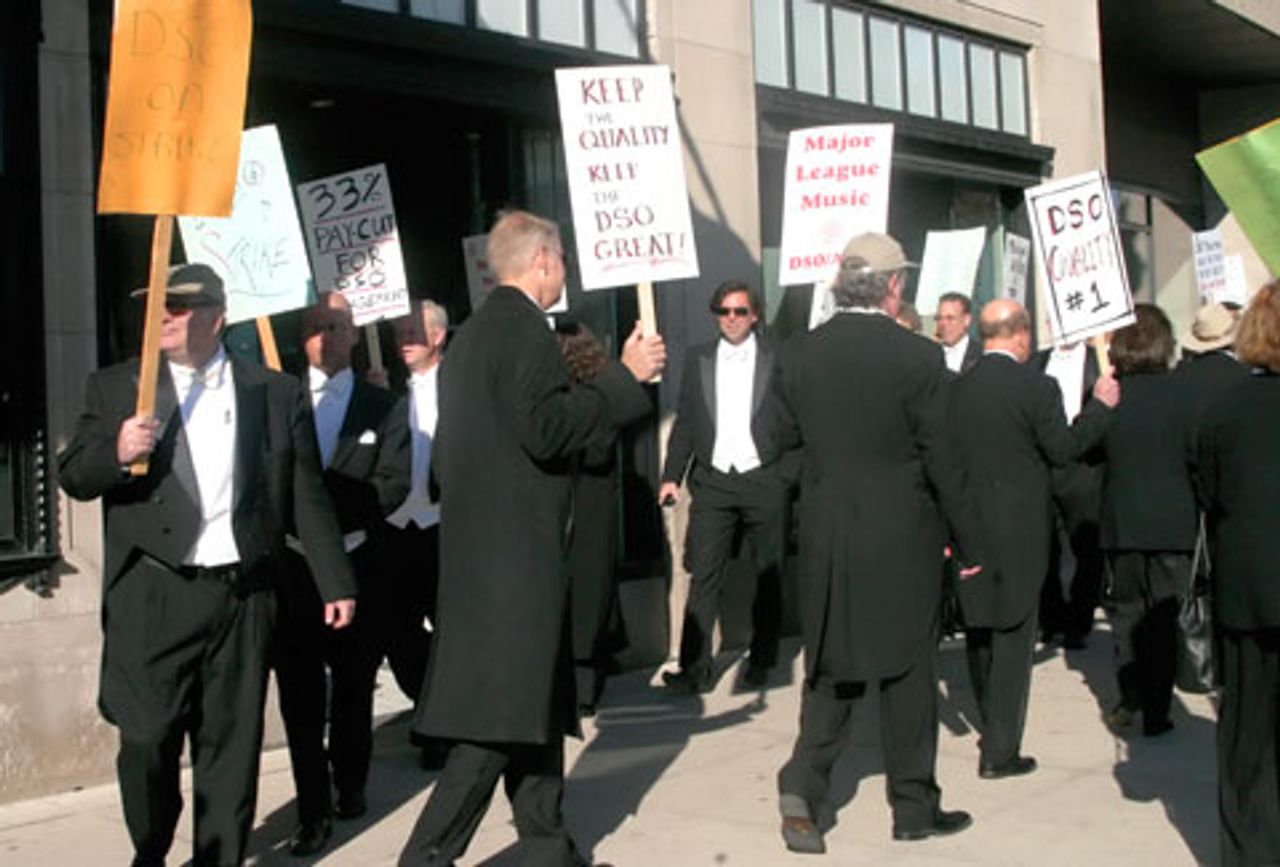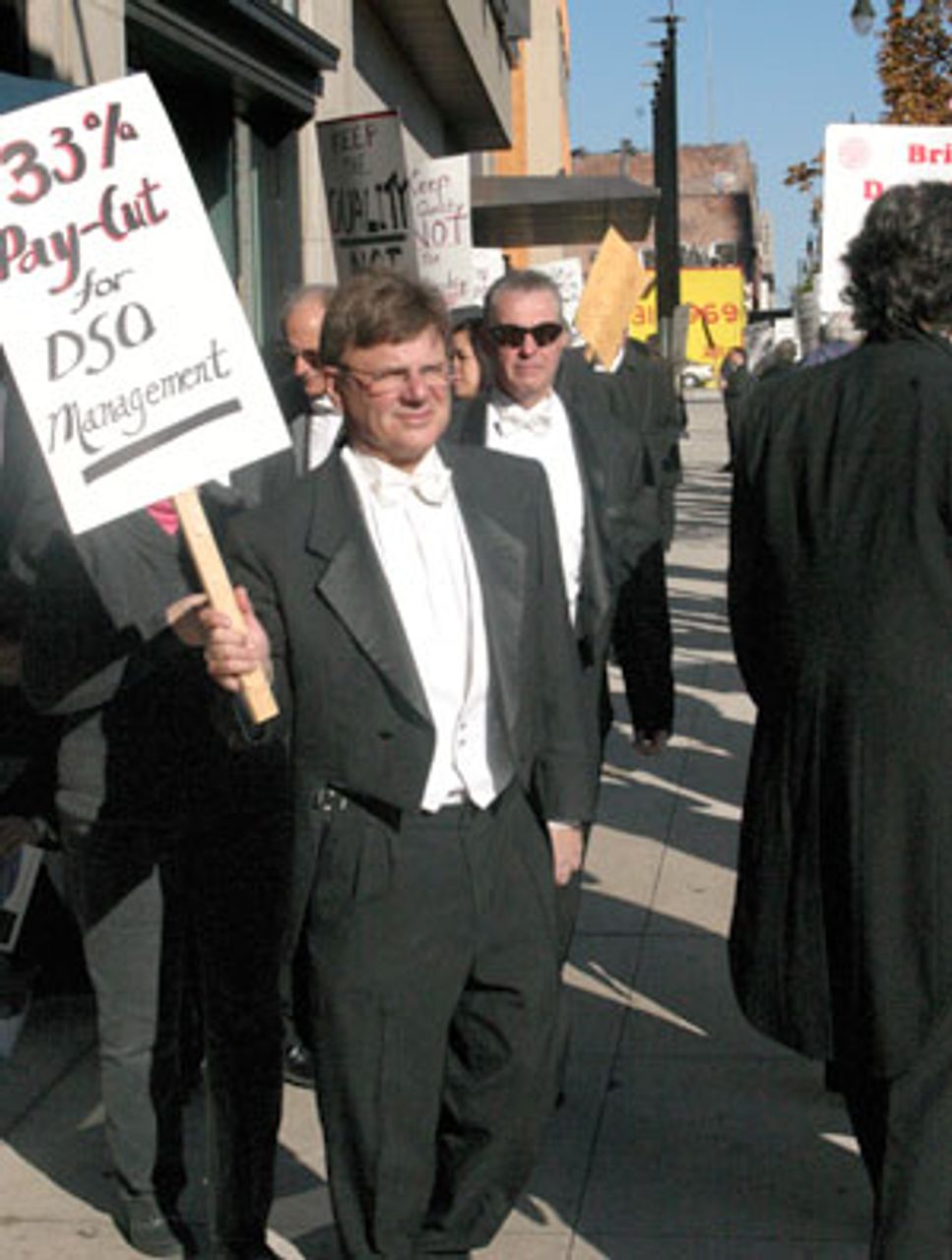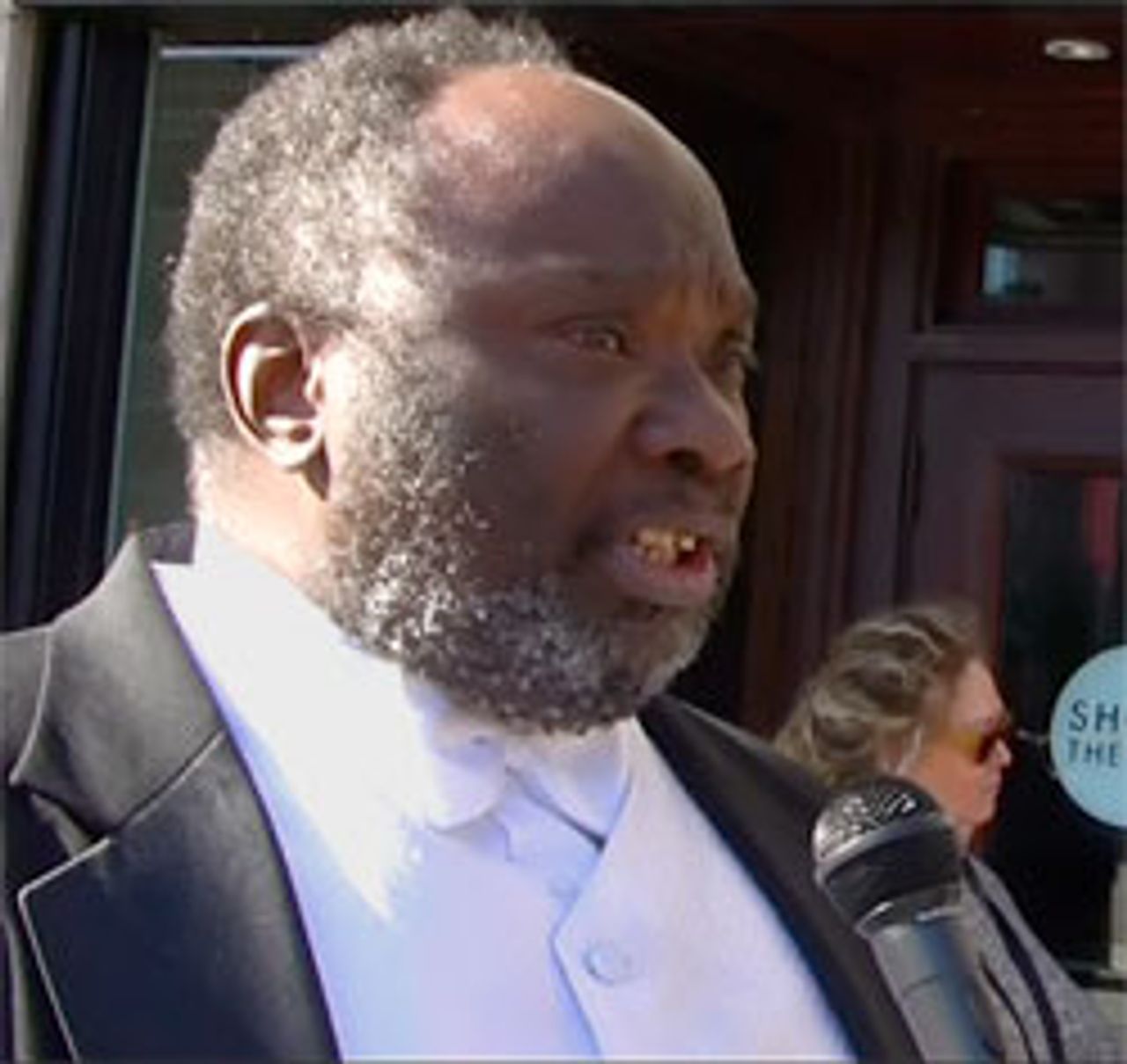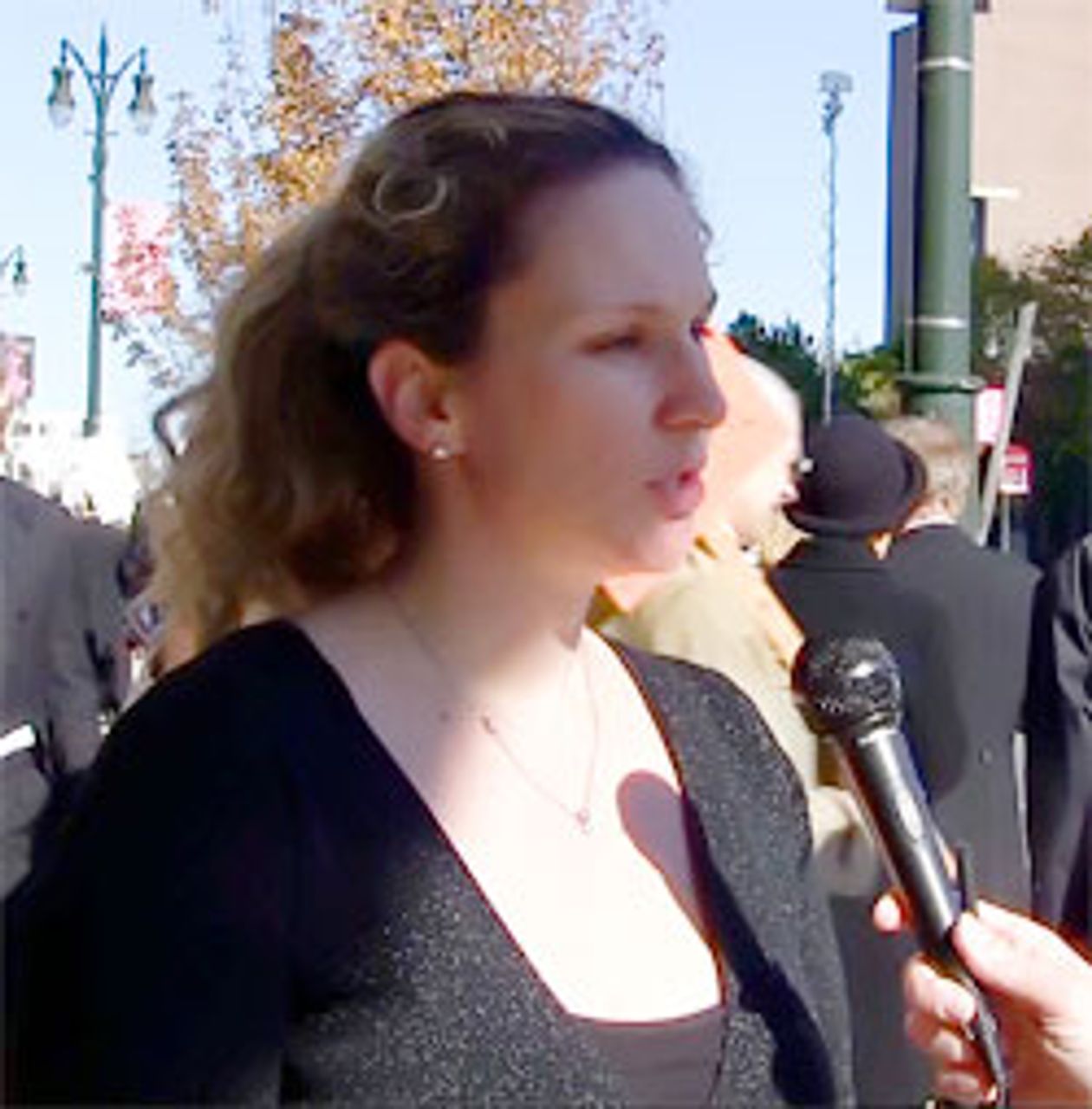Musicians for the Detroit Symphony Orchestra went on strike October 4, resisting enormous pay and benefit cuts and changes in work rules. The musicians held a spirited picket Monday morning in front of the Max M. Fisher Music Center on Woodward Avenue in downtown Detroit, dressed in concert attire.
 DSO musicians picket outside Orchestra Hall
DSO musicians picket outside Orchestra HallThe strike by DSO musicians follows management’s decision to implement the terms of its final proposal, which includes a 33 percent cut in base salary, cuts in health benefits and pensions and a 42 percent reduction in salary for starting players. There are currently 84 active members of the orchestra, although there are 96 full-time slots. As part of its proposal, management wants to make the reduction in size permanent.
Under the imposed terms, current base pay of about $104,650 would fall to $70,200. Starting pay would be just $63,000. Management has advised the union that it is cancelling all insurance for orchestra members, including vision, medical, dental, life and instrument insurance.
Although the musicians’ contract expired August 29, because of an error in filing legal paperwork management could not implement its terms until after September 23. The musicians set an October 4 strike date, the scheduled start of rehearsals, after a final negotiating session failed to produce an agreement.
DSO management says the cuts are necessary because of continuing operating deficits, which will total some $9 million by year’s end, and the erosion of its endowment. Tickets sales are declining and corporate and private donations have fallen.
The musicians union, The Detroit Federation of Musicians, Local 5 of the American Federation of Musicians, has offered its own pay cuts, 22 percent in the first year with a partial restoration in the third year. In recent years the players have agreed to concessions, but there was some restitution at the end of the contract. The last strike by DSO musicians was in 1987 and lasted 12 weeks.
In deciding to strike, musicians have taken a courageous stand. The Detroit Symphony is one of the finest orchestras in the country. Musicians say that the drastic cuts demanded by management threaten the survival of the DSO as a top rated symphony. Orchestra members stressed the enormous effort and dedication it takes to perform with the DSO. They see their struggle as part of a fight to defend the right to art and culture.
The strike has evoked hostility in the corporate media. An editorial in the September 30 edition of the Detroit News cited recently released figures showing a 21.3 percent fall in household income in Michigan over the last decade and the state’s 16.2 percent poverty rate to call on DSO musicians to accept the draconian cuts demanded by management. Saying “the money is no longer there,” it called on orchestra members to “hang on” and “pray along with the rest of us for a future that returns our state to prosperity.”
 DSO musicians picket
DSO musicians picketThat News did not bother to mention that prosperity has already returned to the Detroit-based auto manufacturers, which are recording record profits after imposing huge wage and benefit cuts for workers and retirees.
The World Socialist Web Site spoke to striking musicians on the picket line Monday. The players have scheduled two public concerts in the Detroit area on October 10 and October 24 to build support for their struggle.
 Joseph Striplin
Joseph StriplinJoseph Striplin, a DSO violinist, told the WSWS, “You don’t go on strike unless you are forced to. We are fighting to save the DSO as a first-rate ensemble. Under the proposal the DSO will be a third-rate ensemble.”
Doug Cornelsen, a DSO clarinetist and Vice President of the Detroit Federation of Musicians, told the WSWS that a scheduled October 3 concert planned to build public support for orchestra members had to be cancelled after the DSO put pressure on guest conductor, JoAnn Falletta, music director of the Buffalo Philharmonic. “Management leaned hard on her not to help the DSO. It was like they were threatening her with a blacklist.”
A DSO violist, who has played with the orchestra 38 years, told the WSWS, “This is a world class orchestra. It is so important to the state. This area can’t afford to lose it.
“There is a worldwide competition to get into this orchestra. Musicians come here from all over the world. This orchestra is important. We want to maintain the high quality.
“I see the importance of the DSO in my students. Students say of the DSO, ‘Wow.’ They’ll never make it into a major orchestra, but they love the DSO, it inspires them.”
The violinist added, “The arts in this country are privately supported. It is a shame. It should be run for the soul of humanity, not for profits. In Europe the state supports the arts, but not here.
“There are so many misplaced values. Art is what makes humans human. It is a valuable part of society. Detroit needs uplifting. It is a huge Kaleidoscope of things when you have first class arts.”
 Shanda Lowery
Shanda LoweryShanda Lowery, another violist, told the WSWS, “Players are drawn to the DSO worldwide because of the quality of the orchestra. I got my job on my third audition. I just kept trying.
“What is taking place with the arts is sad. I know how much music and art mean, how much it can influence people’s lives, how much it enriches their lives. I don’t want it just for my children; I want all children to have an opportunity. We need to keep fighting for it.
“We have gotten a lot of support from other orchestras,” Lowery added. “All orchestras across the country are looking at what happens here.”
Subscribe to the IWA-RFC Newsletter
Get email updates on workers’ struggles and a global perspective from the International Workers Alliance of Rank-and-File Committees.
